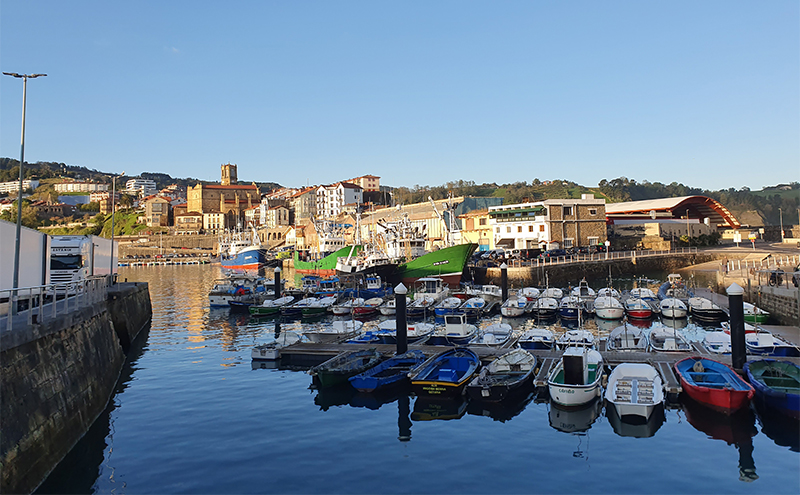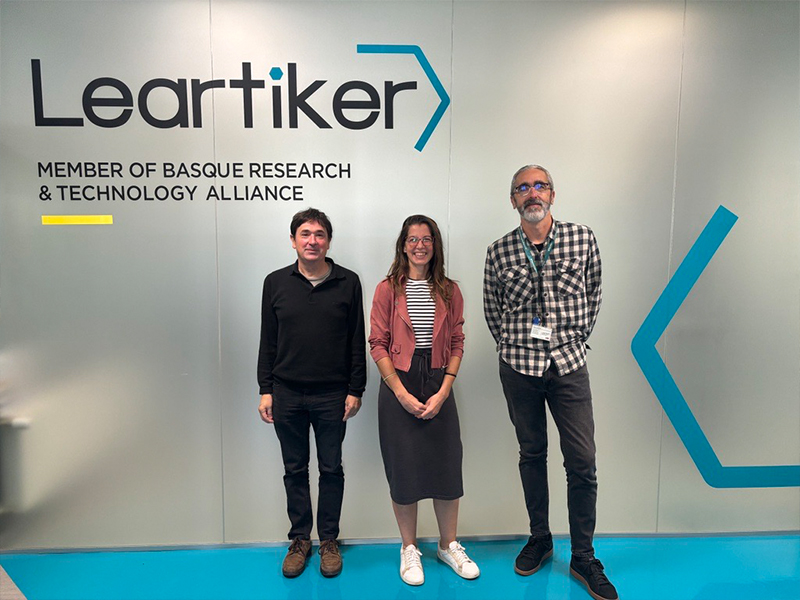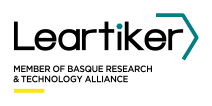TICS-BONITO, innovation for more sustainable bonito fishing
The TICS-BONITO project involves the Basque technology centre Leartiker (Markina-Xemein, Bizkaia) and the Enxeñería Eficiente e Dixital (EN.EDI) research group of the School of Industrial Design of the University of Vigo. Led by Leartiker, it aims to work on technological innovation in bonito and tuna fishing, supporting sustainable fishing gear that protects the species itself and the environment in general, through technological innovations in fishing processes that improve their efficiency.
Various methods are used to fish for bonito and other tuna-related fish. These range from fishing on smaller vessels along the coast to more intensive fishing methods in fishing grounds across the world. Irrespective of the intensity of the fishing, the gear used, or the location, the sustainability of fishing and protecting the biodiversity of the environment and other species are now key priorities for fishing vessel owners. On this basis, the project proposes steps to improve the functionality and sustainability of fishing gear used in inshore bonito fishing and deep-sea purse seine fishing.
This initiative is part of the PLEAMAR programme, which is promoted by the Biodiversity Foundation of the Ministry for the Ecological Transition and the Demographic Challenge (MITECO) and jointly funded by the European Maritime, Fisheries and Aquaculture Fund. With the aim of promoting sustainability in the fishery and aquaculture sectors through innovation and environmental protection, the programme is divided into several pillars. The TICS-BONITO project focuses its efforts on the first of these, namely to develop or introduce new technical, scientific or organisational knowledge into fishing activities in order to mitigate or eliminate their negative effects on the environment (Pillar 1: Interactions and impacts. Reducing the impact of fishing on the marine environment).

Getaria (Gipuzkoa)
Aims and activities of the TICS-BONITO project
The main aim of the TICS-BONITO project is to support the bonito and tuna fishing sector by developing proposals for inshore and deep-sea fishing methods. To achieve this, the project focuses on two strands of work. For deep-sea fishing, it will focus on the biodegradability of fish aggregating devices (FADs). These devices can have a negative impact on the marine environment due to the durable plastic materials of which they are made. The project aims to develop devices made of non-entangling and biodegradable materials, which are also modular and sensorised.
In terms of inshore fishing gear, the project is to conduct a detailed study of the methods currently employed for live bait fishing with rods and reels or trolling, so that it can recommend automated aids and digital solutions that support and complement the current on-deck methods and enable the monitoring of parameters that are judged to be important.
In order to achieve these objectives, the project leaders believe that working closely with the fishing industry is essential, allowing it to share its knowledge and identify its specific needs, thereby helping to define the technical requirements of the project. This will ensure that the technological solutions proposed actually cater to the needs of the sector. Therefore, meetings have already been held with fishers’ associations, vessel owners and developers of on-board machinery to learn about the current situation in the sector. This will serve as the basis for future proposals.

Kick off meeting
Project presentation and dissemination
The project was presented at the BiPoCo 2024 conference (2-5 September) on Bio-based Polymers and Composites, which was held in Esztergom, Hungary. This event focuses on current trends in the sustainable production and application of biopolymers, as well as their role in biomass-based value chains. Blanca Lekube, the project leader and a researcher at Leartiker, led one of the conference sessions and presented the project with a scientific poster.
TICS-BONITO wants to ensure that the results obtained by the project are shared with the scientific community, end users and society in general. Therefore, the project leaders will be making a special effort to disseminate the project through articles in scientific journals, presentations at events, and the creation of informative material.
About Leartiker and the University of Vigo
The collaboration between Leartiker and the University of Vigo will be essential to the development of the innovative technologies that form the basis of this initiative. This is a long-standing collaboration, as the two institutions started working together in 2015, leading to the Circular Seas European project (2019-2023).
Leartiker is a technology centre that specialises in polymeric materials and advanced technologies. It is a member of the Mondragón Group and the Basque Research Technology Alliance - BRTA. The University of Vigo's EN.EDI research group provides its expertise in automation engineering, digitalisation and robotics. Together, these partners are committed to delivering innovation and sustainability in the fishing industry.
The technology centre, which is based in Markina-Xemein (Bizkaia), will lead the project and will be responsible for developing biodegradable materials, designing the FAD and coordinating the project. Meanwhile, the University of Vigo's EN.EDI group will be responsible for automation and digitalisation activities.
The first face-to-face meeting was held at Leartiker's facilities at the end of October, attended by Julio Garrido, the person heading the project for the University of Vigo's group. The next meeting is scheduled to be held in Vigo in February.
This project is being carried out with the support of the Ministry for the Ecological Transition and Demographic Challenge's Biodiversity Foundation, through the Pleamar Programme, and it is jointly funded by the European Union through the EMFAF (European Maritime, Fisheries and Aquaculture Fund).



